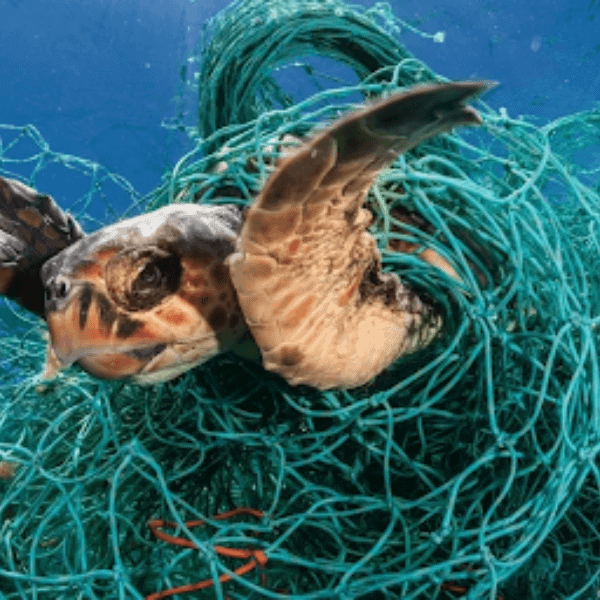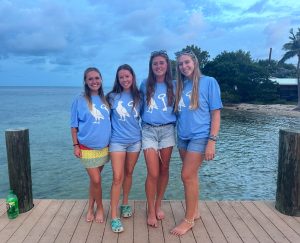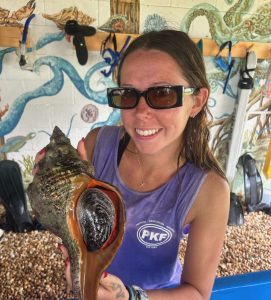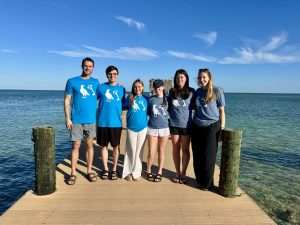On Pigeon Key, when doing debris cleanups, one of the most commonly found items is fishing gear. Discarded fishing gear is a huge problem for our oceans, as it harms thousands of our favorite marine animals every year through ghost fishing, which happens when animals get trapped in any unmanned or abandoned fishing gear.
These items can be nets, traps, fishing lines, buoys, or other human-made gear. We can all play a part to help prevent the damage that ghost fishing causes through reducing, reusing, and recycling old fishing gear, and picking up and throwing away any abandoned items that we find on our coastlines or out in the water.
The impact of ghost fishing on our marine organisms and environment is huge. It’s estimated that out of all the marine debris in our oceans, 10% is abandoned fishing gear. This means that roughly 500,000 to 1 million tons of fishing gear are discarded in our oceans annually!
Fishing gear is one of the most lethal of all the marine debris, killing hundreds of thousands of sharks, sea turtles, seabirds, whales, and dolphins every single year. Many marine mammals and turtles drown when entangled in these nets because they get stuck and cannot swim to the surface to breathe. Ghost fishing has also contributed to the decline of many commericially important fish stocks around the world.
Some solutions to this significant problem include clean-ups, as we do on Pigeon Key, proper fishing and gear management practices, and innovative fishing gear. With every marine science education group that visits our island, the kids take part in an island clean-up. This is one way Pigeon Key makes a difference on our island and you can do it anywhere!
Fishers can also help make a difference by minimizing their losses of fishing gear through better gear management practices, such as reporting lost gear and retrieval from the ocean if it is deemed safe. If there is old or damaged gear, they can dispose of it at a proper recycling center. There is even an economic incentive in some areas!
Sharing their expertise and testing innovative new fishing gear, like biodegradable nets and lines, could prove beneficial as well. As consumers, we can make a difference in preventing more ghost gear, such as asking fishing gear industries to implement preventative measures.
Every day on Pigeon Key there is new marine debris that makes its way to the shores by wind and ocean currents and is frequently lost fishing gear. On your next visit to Pigeon Key, check out the many buoys in Section Gang that have been collected on the shores of our island and have been repurposed for our Marine Science Education Groups!




